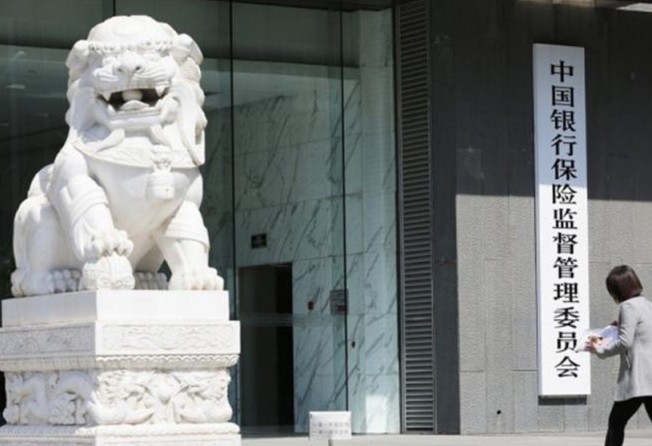
02:17
Tech companies in China chase metaverse opportunities in immersive virtual online world

China’s financial services watchdog on Friday warned the public to stay alert to illegal fundraising schemes and scams related to the metaverse, as authorities amplify the potential risks involved in what some consider to be the next phase of the internet.
Criminals have been busy “absorbing capital” from suspected illicit fundraisers and rackets, which are in the guise of metaverse investment projects and blockchain games, according to the China Banking and Insurance Regulatory Commission (CBIRC), in a statement published on its website and official social media.
The warning comes at a time when the metaverse – the concept of a shared virtual environment that users access via the internet – has become increasingly popular with Chinese technology companies and a growing number of investors. This enthusiasm is reflected in various enterprises that have linked their businesses to the concept, while books about the metaverse have become bestsellers.
The CBIRC indicated that there are four common tricks used by metaverse fraudsters. It said some cook up fake investment opportunities by packaging metaverse-related activities – including video gaming, artificial intelligence and virtual reality – into attractive hi-tech projects.
Others promote metaverse games that promise high returns by simply playing them. These scammers convince people to invest by asking them to buy virtual currencies and certain in-game assets, according to the CBIRC.
There are also fraudsters who hype up the concept of metaverse real estate, enticing people to get in on this new virtual property market to “rake in money”, the financial services watchdog said.
Other criminals lure people into buying digital currencies by marketing these as “currencies used in the metaverse”, the CBIRC said. It added that these virtual currencies, however, are usually issued by the criminals, who profit by manipulating the price and setting barriers for people who want to withdraw cash.
The regulator said people are encouraged to immediately report suspected metaverse scams to local authorities.

The term metaverse, which was coined by American writer Neal Stephenson in his 1992 science-fiction novel Snow Crash, refers to a lifelike, immersive virtual world where people can meet, work and play using devices including virtual reality headsets, video gaming consoles, and gadgets that offer augmented reality technology like smartphones and smart glasses.
The CBIRC’s latest warning reflects not only the market frenzy on anything related to this concept, but also how metaverse mania has become fertile new ground for criminal activities.
Still, the financial services watchdog did not directly call out scams in the growing market for non-fungible tokens (NFTs), digital assets whose ownership and uniqueness are verified by blockchain technology.
Its warning, however, appears to extend to fraudulent activities commonly seen in the NFT space worldwide, such as rug pulls, in which a project’s team disappears after raising money.
Vibrant communities of metaverse and NFT enthusiasts have popped up across China, despite authorities’ hostility towards cryptocurrencies and official warnings against speculative behaviour in the space.
People’s Daily, the Chinese Communist Party’s mouthpiece newspaper, warned in December that speculators who engage in virtual property sales risk “getting burned”, after slamming the metaverse market frenzy.
An official at the People’s Bank of China, China’s central bank, also said in November that virtual assets could easily become money-laundering tools for criminals.